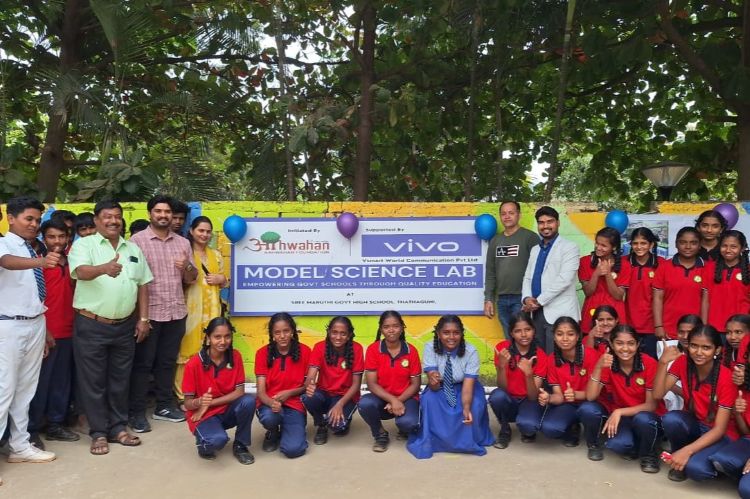The Indian Ocean, a lifeline for millions of Indians living along its expansive coastline, is facing a growing threat that lurks beneath its azure waves: ghost nets. These are abandoned, lost, or discarded fishing nets that continue to float aimlessly in the ocean. Though unseen, their impact is profound, silently ensnaring marine life and threatening biodiversity.
India, with its 7,517 kilometers of coastline and a $6 billion fishing industry employing over 14 million people, is grappling with this menace. Ghost nets are not only killing marine creatures but are also affecting the livelihoods of fishermen and the health of ecosystems essential for coastal communities.
The Problem: Ghost Nets in Indian Waters
Ghost nets are often made of durable, synthetic materials like nylon, designed to endure the ocean's harsh environment. However, this durability makes them a persistent hazard, capable of drifting for years and trapping marine species.
According to a 2022 report by the United Nations Environment Programme (UNEP), an estimated 640,000 tons of fishing gear are discarded annually in the world’s oceans. A significant portion of this ends up in the Indian Ocean, particularly along the coasts of Kerala, Tamil Nadu, and Gujarat.
India’s diverse marine species are severely affected. The Central Marine Fisheries Research Institute (CMFRI) estimates that ghost nets trap thousands of turtles, dolphins, sharks, and seabirds every year. For instance:
- Olive Ridley Turtles: Vulnerable under the IUCN Red List, are frequently entangled in ghost nets along Odisha's coast, especially during their annual mass nesting.
- Dolphins: Coastal species, such as the Indian Ocean humpback dolphin, are often found dead, caught in ghost nets.
- Sharks: Several species, including the critically endangered scalloped hammerhead shark, are also victims.
The environmental costs are staggering, but the socio-economic toll is equally devastating. Fishermen lose valuable catches as ghost nets continue their indiscriminate trapping. Furthermore, nets clog harbors and coral reefs, impeding navigation and destroying marine habitats essential for fish breeding.
Champions of Change: Organizations Fighting Ghost Nets
While the problem is daunting, several organizations, scientists, and grassroots initiatives are stepping up to combat ghost nets in India.
1. The Ghost Net Retrieval Program (Kerala)
Kerala, one of India’s most significant fishing states, has become a focal point for tackling ghost nets. Organizations like Friends of Marine Life (FML) are leading retrieval operations.
- Between 2015 and 2023, FML retrieved over 25 tons of ghost nets from Kerala’s waters. Their divers work with local fishermen to identify and safely remove these nets.
- Success Story: In 2022, a whale shark entangled in a ghost net off the coast of Vizhinjam was successfully freed by FML, showcasing their expertise and commitment.
2. Marine Mammal Research and Conservation Network (Tamil Nadu)
Focusing on marine mammal rescue and conservation, this Chennai-based group has been instrumental in freeing dolphins and dugongs from ghost nets.
- Their recent collaboration with the Tamil Nadu Forest Department led to the rescue of 15 Indo-Pacific humpback dolphins in 2023 alone.
- They also conduct workshops to educate fishermen about the dangers of ghost nets and alternative fishing methods.
3. Project Drishti (Goa)
Supported by the Indian Coast Guard, this initiative focuses on mapping and cleaning ghost nets along Goa’s coastline.
- By combining satellite imagery and underwater drones, they have mapped ghost net hotspots across 50 square kilometers.
- In 2023, their cleanup drives removed 3,000 kilograms of ghost nets from Goa's beaches and waters.
Stories of Hope: Rescued Marine Animals
Behind every ton of ghost nets retrieved lies the story of lives saved.
- In 2021, a group of researchers from CMFRI, along with local fishermen, rescued three Olive Ridley turtles trapped in ghost nets off Odisha’s coast. These turtles were rehabilitated and later released into the wild.
- In Kerala, the Ghost Net Retrieval Program freed a 15-meter-long whale shark, an endangered species, in early 2023. This operation involved 12 divers and took over six hours, demonstrating the complexity and importance of such missions.
Addressing the Root Cause: Towards Sustainability
India’s battle against ghost nets isn’t just about cleaning up the aftermath; it’s about prevention and policy.
1. Sustainable Fishing Practices
The Marine Stewardship Council (MSC), an international organization promoting sustainable fishing, has initiated programs in India to educate fishermen about eco-friendly gear and practices.
- In Gujarat, over 500 fishermen have adopted biodegradable nets, reducing the risk of ghost nets.
- MSC-certified fisheries have reported a 20% reduction in gear loss since 2020.
2. Combating Illegal, Unreported, and Unregulated (IUU) Fishing
India is actively involved in global efforts to combat IUU fishing, a significant contributor to ghost nets.
- In 2023, the Indian Coast Guard intercepted 15 foreign fishing vessels operating illegally in Indian waters, confiscating gear and nets that would otherwise become marine debris.
- Collaboration with The Food and Agriculture Organization (FAO) has led to the implementation of the Port State Measures Agreement, strengthening checks on fishing activities.
3. Policy and Legislative Measures
The Marine Fisheries (Regulation and Management) Bill, 2022, seeks to regulate fishing practices and mandate the use of biodegradable nets.Additionally, the Ministry of Environment, Forest and Climate Change is working on an Ocean Plastic Management Framework, which includes ghost net mitigation.
Global Movements and India’s Role
India’s fight against ghost nets aligns with global marine conservation movements. The United Nations Decade of Ocean Science for Sustainable Development (2021-2030) emphasizes tackling marine debris, including ghost nets.At the 2023 Global Marine Conservation Summit, India highlighted its commitment to preserving the Indian Ocean, showcasing success stories from Kerala and Tamil Nadu. Partnerships with countries like Australia and Japan have facilitated the exchange of technology for ghost net retrieval and recycling.









.jpg)




